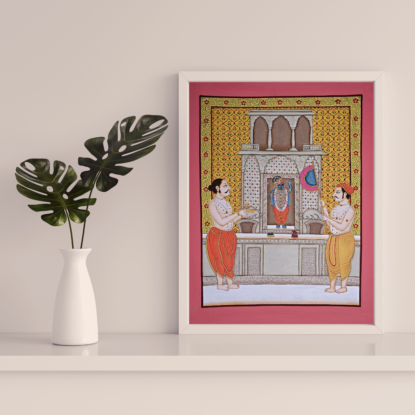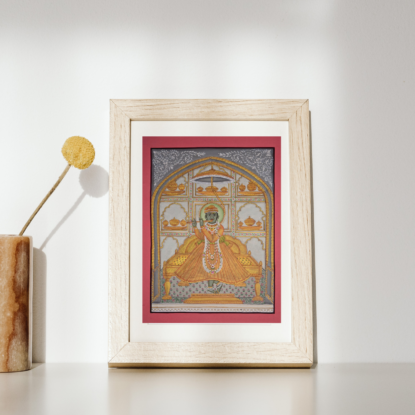Pichwai
Pichwai (pichvai) is a style of painting that originated over 400 years ago, in the town of Nathdwara near Udaipur in Rajasthan, India. Intricate and visually stunning, pichwai paintings, made on cloth, depict tales from Lord Krishna’s life. Creating a pichwai can take several months, and requires immense skill, as the smallest details need to be painted with precision. Lord Krishna is often depicted as Shrinathji in Pichwais, which is the deity manifest as a seven-year-old child. Other common subjects found in pichwai paintings are Radha, gopis, cows and lotuses. Festivals and celebrations such as Sharad Purnima, Raas Leela, Annakoot or Govardhan Puja, Janmashtami, Gopashtami, Nand Mahotsav, Diwali and Holi are frequently depicted in Pichwais.
The word Pichwai comes from ‘pichh’ meaning back, and ‘wai’, meaning textile hanging. They are made by members of the Pushti Marg sect, founded by Shri Vallabhacharya in the 16th Century. Originally, pichwai paintings were used to decorate the temple of Shrinathji (Shrinathji ki Haveli) in Nathdwara, hung behind the deity to celebrate different seasons, festivals and events in Lord Krishna’s life. Over time, pichwais also found a place in the homes of art connoisseurs, owing to their visual appeal. Like several other traditional Indian art forms, the art of Pichwai is also dying, and requires recognition and revival.
Showing 217–218 of 218 resultsSorted by latest
Filter

